This article is written by Ritu Rajput.
Introduction
India has embraced an interesting ID framework ordinarily known as Aadhaar or Unique Identification number (UID) that would take into account every one of the necessities of individuals dwelling in India. An interesting 12-digit number which is issued to each inhabitant living in India in view of their statistic and biometric information. The government initiated this step with an intention to set up a system to put an end to duplicate/fake identities supported by verification and authentication in a cost-effective manner.
Aadhaar has the following components
| Name of Aadhaar Issuing Authority | Unique Identification Authority of India |
| Aadhaar Customer Care Number | 1947 |
| Inception of aadhaar Card | September 2010 |
| Validity of Aadhaar Card | Lifetime |
| Number Of Enrolments | 120 crore (approximate) |
Aadhaar Details That can be Updated
| Demographic Information | Name, address, Date of birth/Age, Gender, Mobile Number, Email Address, Relationship Status and Information Sharing Consent |
| Biometric Information | Iris, Fingerprints and Facial Photograph |
Demographic Data Update
- Changes in life events such as marriage may prompt residents changing their basic demographic details such as name and address. Address and a mobile number could also change due to change or relocation to fresher or to newer areas. Occupants/residents may also want changes in their relative’s details due to changes in life events. Also, residents could have other reasons to change their mobile number, email address etc.
- Any error or mistakes made during the enrolment process wherein the resident’s demographic data may have been captured incorrectly. Changes to “DOB/Age” and “Gender’ fields are expected primarily due to enrolment errors.
- Where the inhabitant may want to change the local language of enrollment to another that he/she prefers from the existing language. Then, all the demographic information that is printed on Aadhaar letter will need to be updated in the new local language.
- UIDAI may likewise ascertain the availability of POI (Proof of Identity), POA (Proof of Address) and other documents collected at the time of enrolment/update. It notifies the resident to update their demographic information and to submit the required archives if there is any problem.
Biometric Data Update
- Age <5 years at the time of starting enrolment – Providing with all the biometric data, the child should be re-enrolled when he/she attains an age of 5 years. A deduplication would be done for the child at this stage.
- Age between 5 and 15 years at the time of enrolment – The resident should furnish all biometrics for updates when the resident attains an age of 15 years.
- Age >15 years at the time of enrolment – Residents are prescribed that they should update their biometric data after every 10 years.
- UIDAI also verifies the quality of biometric which is captured during enrolment/update. All the residents whose biometrics are below the decided threshold level are to be notified by UIDAI to update their biometrics.
Modes of Update – Online & Offline Aadhaar correction
Online Aadhaar correction
Step 1
First, go to official Aadhaar Card Update Portal
Step 2
Then click on Update Aadhaaar Button.
Step 3
Next, you will get to a new page with a link:
https://ssup.uidai.gov.in/ssup-home#/ and then on the bottom of the similar page you see “To submit your update/correction request online please Proceed.”
Step 4
This link will redirect you to aadhaar Card Update Portal.
Note: Check the instructions here by UIDAI for residents who used the Aadhaar web portal.
Step 5
At the point when the page will be opened, there you will see an alternative requesting your Aadhaar card number. Enter your 12 digits Aadhaar number and tap on “Send OTP”. You will get One Time Password on the registered mobile number with UIDAI.
Note: This is valid only for 15 minutes.
Step 6
Enter OTP in the required field and tap on “Login”.
Step 7
Now you will see different choices like Name, Address, Date of Birth, Mobile Number. Tick the choice you want to update and tap on Submit Button.
Step 8
Enter new updated information and click on “Submit Update Request” button.
Step 9
Then, cross check all the details again and have a look if they are precise or not. If all the details filled by you are precise, tap on “Confirm” button and then “Proceed”. In case, if you’ve mistakenly entered anything wrong then click on “Modify” button so you can modify the desired data.
Step 10
Further, you have to upload all the documents after scanning them so that all the verification can be done to the modifications you requested for your Aadhaar card. Once all the documents are uploaded, tap on the Submit Button.
Note: Make sure that uploaded documents should have the same information that you are asking for. The uploaded documents should be attested self-signed. The documents can be in PDF, Microsoft Word or jpg format.
Step 11
You will see “Your update request has been successfully submitted.” Your Update Request Number (URN) is 0000/00986/96XXX” on your screen. You will also get a confirmation message and Update Request Number on your registered mobile number.
Note: Make sure to note down this URN number because it will help you to track the status of Aadhaar Card Update. You can also download the acknowledgementt slip by clicking on “Download File” button on this page.
Step 12
At last, tap on the “Logout” button.
Offline Aadhaar Correction
Step 1
Firstly visit Aadhaar Card Update Portal.
 Step 2
Step 2
Next click on Download Form button.
Note:
- Check the directions here by UIDAI for residents who will send the update request by post.
- It’s necessary to fill a form in capital letters only and write the working mobile number.
- Whatever data you want to get updated whether it is your name, address, Date of Birth or anything add self-attested photocopies of the documents.
- You’ve to fill the form in English as well as in local language.
Step 3
On each attached document do write your 12 digit Aadhaar Update that is issued to you by UIDAI.
Step 4
You should seal the envelope properly and do write “Aadhaar Update/Correction” on the envelope and it should be in clear letters.
Step 5
Here are the addresses where you can post the document.
| Address 1:
UIDAI Post Box No. 10, Chhindwara, Madhya Pradesh – 480001, India |
Address2:
UIDAI Post Box No. 99, Banjara Hills, Hyderabad – 500034, India |
Step 6
You will receive an intimation of the update request receipt when it is received.
Step 7
For the update of your mobile number, the notification for the update will be sent to the given mobile number.
Note: If you want to track your Aadhaar card update status, click here to check the steps.
Documents required for updating or correcting Aadhaar Card details
| Documents required for Proof of Identification | ||
|
|
|
| Documents required for Proof of Address | ||
|
|
|
| Documents required for Date of Birth | ||
|
|
|
| Documents required for Proof of Relation to Head of Family | ||
|
|
|
When to Update Aadhaar Card
- Change in Name, Mobile number, and Address.
- Errors in details during Enrolment Process.
- Updating the Local Language.
- UIDAI demands documents like proof of identity, proof of address and others.
- A child may be enrolled in the Aadhaar Scheme when they are below the age of 5. However, once they attain 5 years of age, they need to be re-enrolled. Once a child crosses 15 years of age, it is important to update all the biometric information. All the residents should update their information every 10 years.
- In case of an accident or if a person suffers an illness that may impact their biometric proof, the resident should apply for Aadhaar Update.
- Incorrect Biometric Capture, quality of biometrics are below the decided threshold, or in case of authentication problems.
Unique Identification Authority of India (UIDAI)
The statutory body for Aadhaar is The Unique Identification Authority of India (UIDAI), Government of India. UIDAI was established in 2016, under the Ministry of Electronics and Information Technology (MeitY) with a mission to provide good, efficient and transparent governance to the people of India.
Function
- As of now, it is obligatory to interface the PAN and bank account with the Aadhaar.
- An online, as well as offline platform, is provided by UIDAI to provide services to people.
- The services range from updating the details of the registered person to correction of data, checking the status of orders raised. To avail these services on an offline platform, an individual may visit an enrolment center with the required documents and have the issues resolved.
Role
- To create approach, strategy and framework for issuing Aadhaar number to people who request for the same by submitting, their demographic information and biometric information by undergoing the procedure of enrollment.
- To guarantee security and confidentiality of identity information and authentication records of people.
- To ensure compliance of Aadhaar Act by all individuals and agencies.
- To make regulations, rules and various other guidelines consistent with the Aadhaar Act, for carrying out the provisions of Aadhaar Act.
Conclusion
The Aadhaar program was introduced in 2009. Since then, a lot may have changed – you may have gotten married (changed surnames), moved to a different city or locality or even lost/changed your mobile number.
The Aadhaar Enabled Payments System (AEPS) is currently in its initial stages. You can use your Aadhaar Card to authorize payments that will require your biometrics – fingerprint and iris scan. So, it is very much important to update your Aadhaar Card. Updating your Aadhaar card is important because the card could replace your regular or credit cards soon.
 Serato DJ Crack 2025Serato DJ PRO Crack
Serato DJ Crack 2025Serato DJ PRO Crack


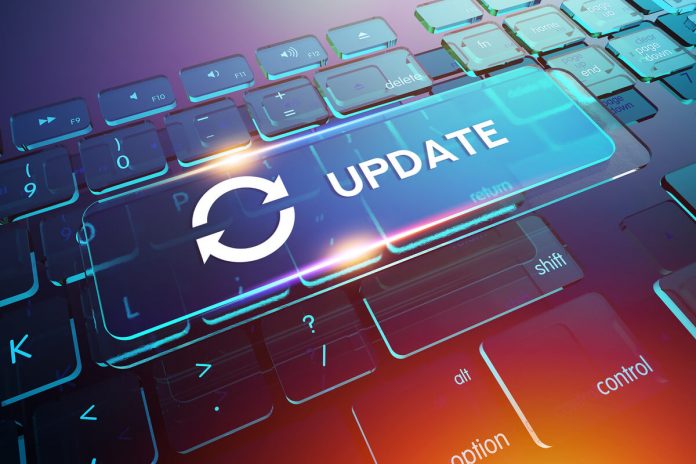

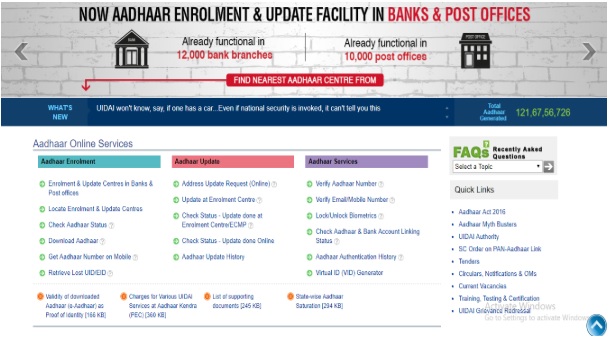
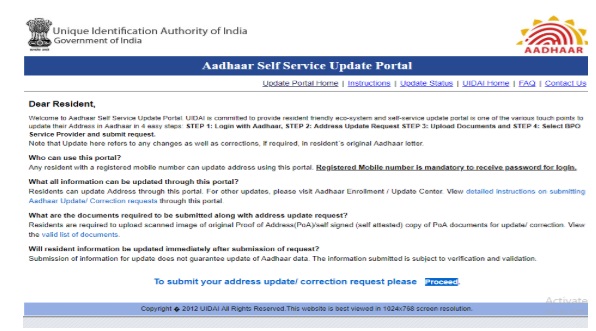
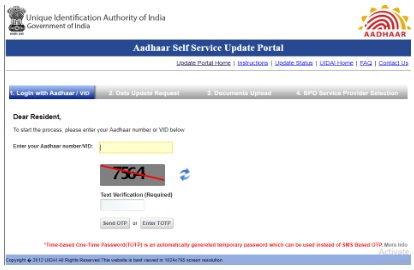
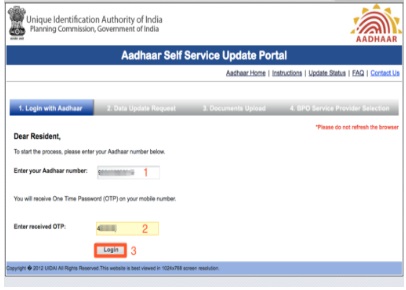

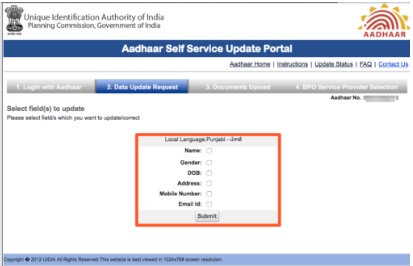
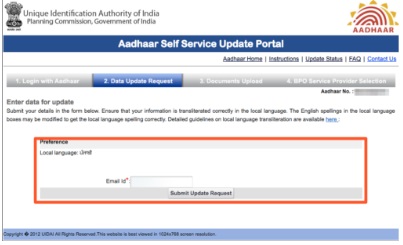
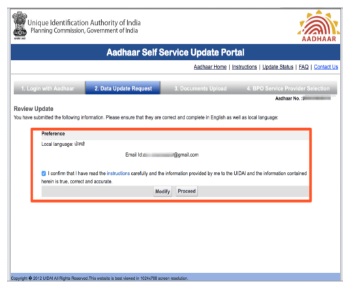
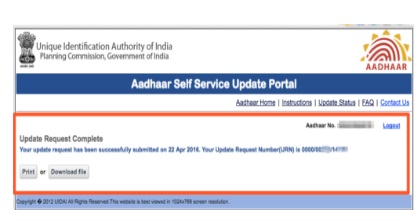




 Allow notifications
Allow notifications



Nice Article